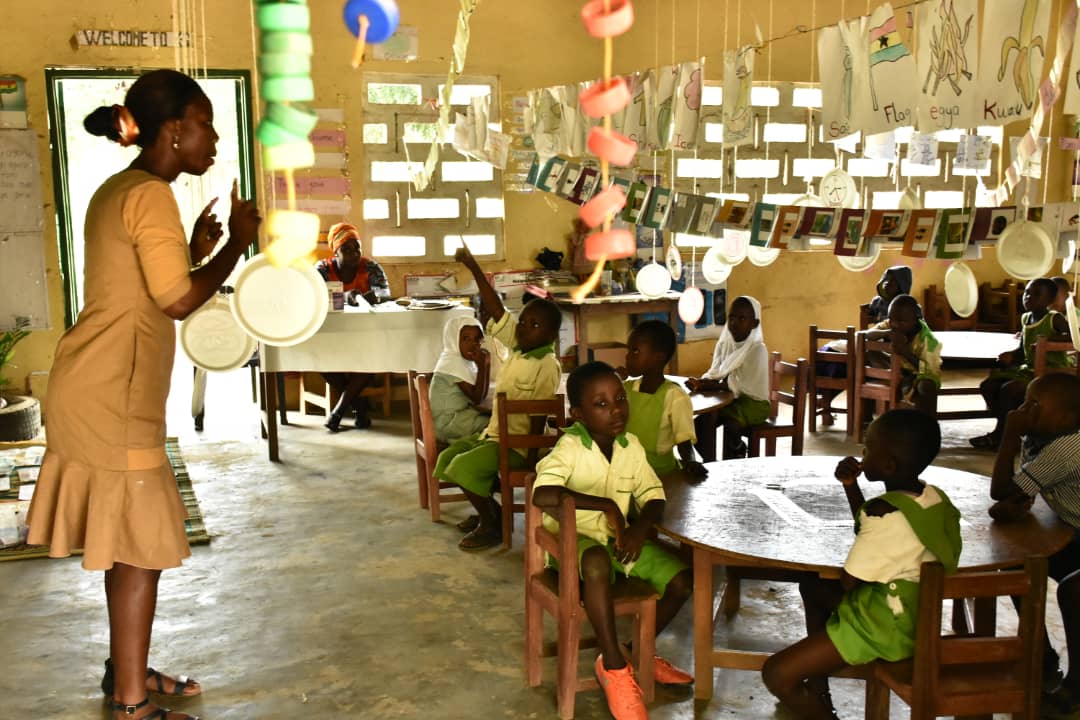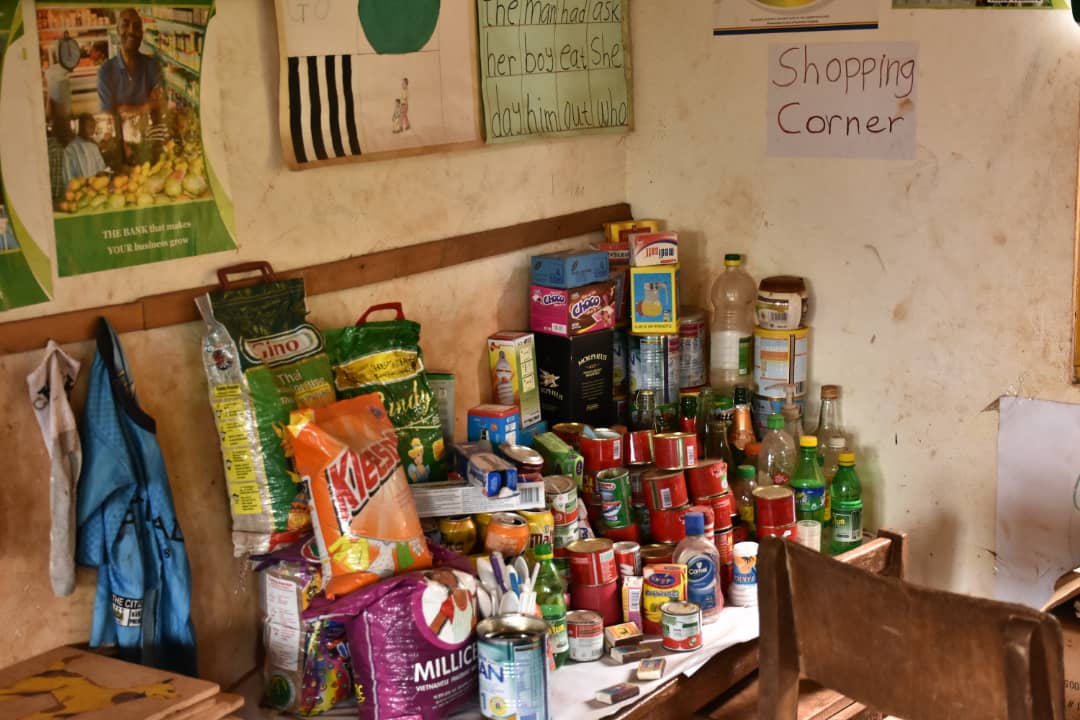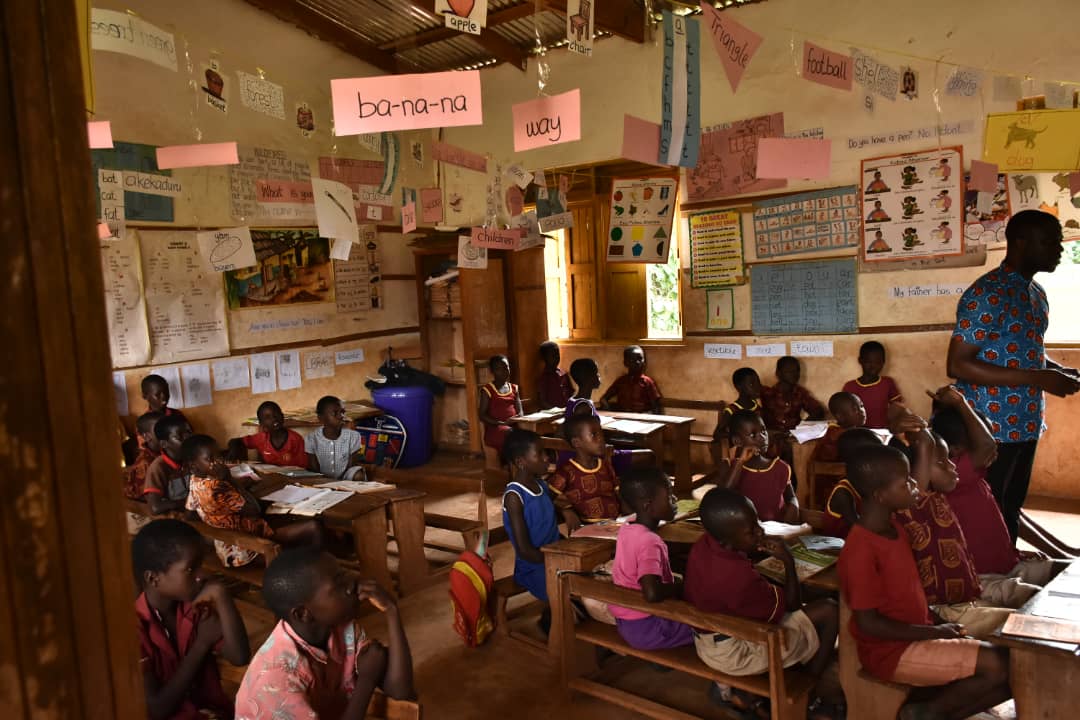Print-rich classroom environment program has been introduced to Basic Schools in the Fanteakwa District as part of efforts to attract children in the district to school and improve upon their ability to read.
Print-rich program uses solid waste materials to create useful teaching and learning materials that relate to literacy and developing pre-reading skills, and enhances ability of the pupils to articulate with the right phonetics.
Some of the materials used are ‘take- away’ packs with marker inscriptions, story telling images, shopping corners made from empty products of all kinds including kitchen and pharmaceutical waste materials used to provide practical learning knowledge for lower primary pupils on day to day human activities.
The Program dubbed “Reading Improvement in Primary Education” made up of two modules – Unlock Literacy and Learning Root Modules – for Class 1 to Class 3 and KG respectively are being implemented in 107 schools in 79 communities in the Fanteakwa district of the Eastern region.
About 552 teachers in the beneficiary Schools have been trained in five core literacy skills to enhance their capacity in utilizing the new teaching and learning materials and methodology.
The World Vision Ghana has been the pillar behind the programme, which has encouraged the formation of reading camps in the communities under the KOICA literacy Boost programme.
The reading camps for early grade learners provide convenient place for children in the communities to go there after school or during weekends to build on their literacy skills. The camps are facilitated by trained community volunteers who take the children through songs, story reading, arts and craft aimed at building the reading capacity of the children.
Fanteakwa District which has less than 1% of pupils capable of reading with fluency and comprehension has now improved to 6.5%, according to the 2017 Assessment made by the Ghana Education Service, which is higher than the National average of 2.5%.
Also, 20.79% of Children transiting from KG are familiar with Print concept due to the implementation of the literacy program.
Teachers in the beneficiary schools are delighted about the project and the benefits to their pupils.
Daniel Ahunu, the acting District Director of GES in Fanteakwa told Starr News, there has been significant improvement in the performance of pupils, especially at the primary level.
He said the District is expecting the improvement to reflect in the Basic Education Certificate Examination in the next six years as a result of the good education foundation provided.
The Cluster Manager of World Vision Ghana, Christopher Teye, said education level was very low in the Fanteakwa District a situation worsened by illegal mining.
He said a number of school going age children were out of school due to many factors including dilapidated classrooms, lack of teaching and learning materials hence the interventions which have really started yielding positive result on education.
According to him, World Vision Ghana has made several strides by adapting to the Sustainable Development Goals (SDGs) to bring positive impact to lives of lost vulnerable children and deprived communities in the areas of education, healthcare, food security and water and sanitation.
Source: Ghana/Starrfmonline.com/103.5FM






